JONES LAW GROUPYour Lawyers for Life! Personal Injury Law Firm in St. Petersburg
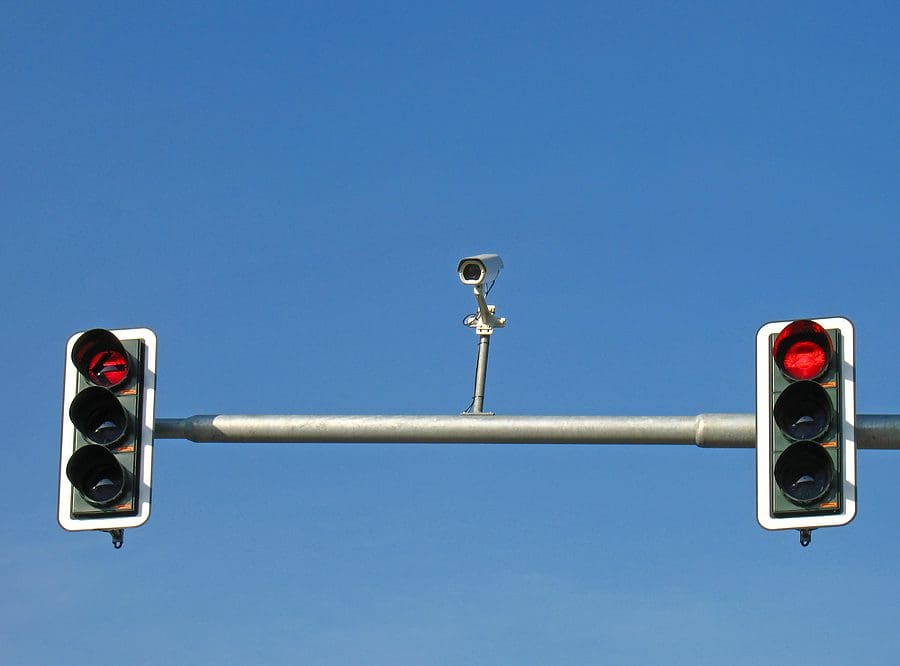
Typically, personal injury attorneys do not use images from red light cameras in car accident claims, but other types of traffic camera footage can provide valuable evidence. Summary Our clients in the Tampa Bay area occasionally ask us if we can retrieve footage from the intersection traffic cameras as evidence after an automobile accident. These […]
Call our personal injury law office directly at (727) 512-9847
At Jones Law Group in St. Petersburg, FL, we would like to hear from you. Contact us for a free personal injury case consultation.
Call our personal injury law office at (727) 512-9847
Get educated on the Florida's personal injury laws and more.
Typically, personal injury attorneys do not use images from red light cameras in car accident claims, but other types of traffic camera footage can provide valuable evidence.
Summary
Our clients in the Tampa Bay area occasionally ask us if we can retrieve footage from the intersection traffic cameras as evidence after an automobile accident. These little white cameras on top of traffic lights are not red light cameras and they do not record footage that can be retrieved in the future.
However, there are many potential sources of evidence in a car accident claim. Our team of Florida car accident lawyers can help you build a case for compensation based on a negligent driver’s actions.
Schedule a free consultation with us by calling (727) 571-1333 or filling out our contact form.
So what do they do?
These are traffic monitoring cameras owned by the Florida Department of Transportation (FDOT). They exist to help the flow of traffic and provide a live stream used by traffic engineers, law enforcement, cities, and counties.
These cameras record in real-time, so there is no recorded video from these cameras. Technically, the FDOT does occasionally save footage from these cameras.
However, the likelihood that your accident happens in front of an FDOT camera, it’s recorded, your attorney somehow finds out about it, and you can successfully subpoena it is very very low.
The good news is that footage from these white FDOT cameras is not needed to prove a car accident case.
Unfortunately, no. These cameras are only used to capture red light violations. So really, they don’t even record until someone crosses the white line while the traffic signal is red.
Intersection cameras, often referred to as red-light cameras, are tools used to enforce traffic laws and ensure road safety. They automatically capture an image of a vehicle that enters an intersection against a red light, providing evidence for potential traffic violations.
Some intersections with these cameras also have sensors below the road, so if the intersection begins to get backed up, then the sensors can adjust the timing of traffic lights.
The good news is that even though camera footage cannot be attained and used as evidence, law enforcement and 911 dispatchers can easily respond to an emergency or traffic issue in the intersection, including car accidents.
One of the main reasons why footage from traffic cameras is often inaccessible is that these cameras are primarily used for real-time traffic management and monitoring. The Florida Department of Transportation (FDOT) uses these cameras to manage traffic flow and respond to incidents as they happen.
This means that while the cameras are continuously recording, the footage is not typically stored for future retrieval. Even if footage is occasionally saved, finding and subpoenaing the specific footage of an accident can be a daunting and often unsuccessful task.
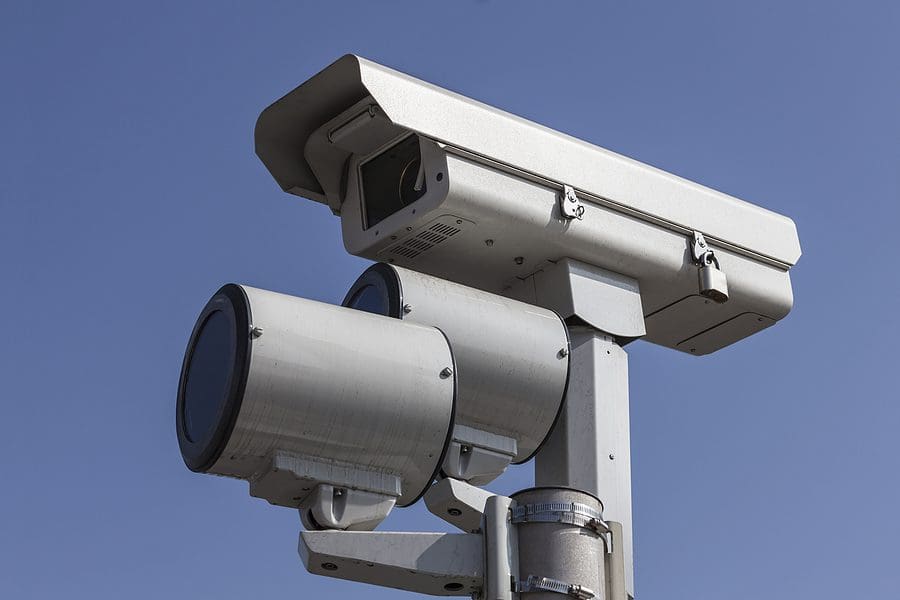
Yes, some cameras on traffic lights, known as red-light cameras, are specifically designed to enforce traffic laws by issuing tickets to drivers who run red lights. These cameras automatically capture images of vehicles that enter an intersection after the light has turned red.
When a violation is detected, the system records the license plate number and generates a citation. Then, the citation is then mailed to the registered owner of the vehicle.
It’s important to note that these cameras only activate when a vehicle crosses the stop line during a red signal. They are not continuously recording footage. This automated enforcement helps improve road safety by deterring red-light running and reducing the likelihood of accidents at intersections.
Intersection cameras help monitor and manage traffic at busy crossings. Mounted on traffic light poles, these cameras detect vehicles approaching and moving through intersections using sensors. They provide real-time video to traffic management centers for live monitoring and quick incident response.
Some cameras also enforce red light violations by capturing images of vehicles that run red lights, which can then be used to issue tickets. Additionally, these cameras collect traffic data to help improve road safety and traffic flow.
If you are injured in a Florida car accident, obtaining video evidence of the incident is helpful for your attorney. They can leverage it to get you the money you need to pay your bills and rebuild your life.
Now that we know securing footage from FDOT weather and traffic cameras and red light cameras is pretty much out, what video footage might be available to actually help your case?
Speed cameras were recently legalized in Florida in June 2023 specifically for use in school zones. Once they are installed, Florida law enforcement will be able to capture people speeding through school zones without a police officer seeing the incident, just like a red light cam.
This could mean that if you are involved in a car accident in a school zone you might be able to get video of your accident. This would be very helpful not just for car accidents but for pedestrian accidents and bicycle accidents that are so common around schools.
But, much like traffic and red light cameras, the same barriers seem likely and the chances of getting this footage seems slim. But who knows? Maybe the local governments will take into account the need for camera footage in these areas and make it more easily accessible.
Surveillance cameras on businesses are actually great sources of video to prove liability in a Florida car accident. Business or home security cameras are usually facing in the direction of a road since they are usually attached to a building and pointed out.
They also record either 24/7 or when they detect motion so they usually capture the footage when it happens within their view. Since these cameras are privately owned you do have to contact the owner directly to request access to footage.
Usually, they are more than happy to help. However, be sure that you act quickly or contact a Florida car accident lawyer right away. This type of footage is usually deleted relatively quickly.
The fact is, doorbell cameras like Ring and Nest have revolutionized criminal and civil law cases. Everything from traffic accidents to heinous murder cases has been solved using doorbell cameras. Likely, they will only continue to improve in quality and quantity.
A dashboard camera (aka dash cam) can be a vital tool in providing evidence for a car accident claim when they happen to capture the incident. The most direct use of a dash cam in a car accident case is to capture real-time footage of the accident.
This can show the circumstances leading up to the collision, what caused the car accident, the moment of impact, and the aftermath. It provides an unbiased and accurate account of what happened.
But a dashcam can also be crucial for:
It’s important to note that obtaining dashcam footage can vary depending on local laws.
In more and more cases, bystanders using smartphones have caught video of accidents. Oftentimes, these videos are better than traffic cameras and doorbell cameras. If you can, speak to eyewitnesses following an accident.
See if they filmed or photographed any images that might be useful to your case. Even if they did not, make sure to get their name and number. That way, your car accident attorney can get their eyewitness statement for evidence.
If you are involved in a car accident, you should take video footage of the accident scene yourself. This video should include the negligent driver’s vehicle, your car, and any debris. Include anything else like the intersection and everything around you.
You should also record video or take pictures of your injuries if they are visible. This evidence of your minor or catastrophic injuries from the accident scene can be crucial evidence alongside your medical records.
Do not delete any videos or photos you took at the accident scene until your attorney has copies of them. Ideally, it is best to wait until your case is over.
In addition to video footage, several other forms of evidence can be crucial in supporting a car accident claim. A skilled auto accident lawyer will meticulously gather and analyze this evidence to build a strong case for their client.
By carefully gathering and analyzing these various forms of evidence, an experienced car accident lawyer can effectively demonstrate the other driver’s negligence. Then, they can help their client obtain the compensation they deserve.
Successfully proving negligence in a car accident claim is crucial for obtaining compensation for your injuries and damages. To establish negligence, you must demonstrate that the other driver owed you a duty of care. Furthermore, you need to prove they breached that duty, and that this breach directly caused your injuries.
Every driver on the road has a legal duty to exercise reasonable care to avoid causing harm to others. This includes obeying traffic laws, maintaining control of their vehicle, and driving defensively.
An experienced auto accident lawyer can utilize camera footage from traffic signals, dash cams, or surveillance cameras to demonstrate that the other driver had a legal obligation to act responsibly.
To prove a breach of duty, you must show that the other driver failed to meet the standard of care expected of a reasonable driver. This may involve evidence of speeding, reckless driving, distracted driving (such as texting or using a cell phone), driving under the influence of drugs or alcohol, or running a red light.
An attorney can use witness testimonies, police reports, and accident reconstruction analysis to establish the specific ways in which the other driver violated their duty of care.
Causation requires demonstrating a direct link between the other driver’s negligence and your injuries. This means proving that the other driver’s actions were the direct and proximate cause of the accident.
An auto accident attorney can use accident reconstruction reports, medical records, and expert witness testimony to establish a clear chain of events that led to the accident and your injuries.
Finally, you must prove that you suffered actual damages as a result of the accident. This can include medical expenses, lost wages, pain and suffering, property damage, and loss of earning capacity.
A seasoned car accident attorney can gather medical bills, employment records, and other relevant documentation to quantify your losses and present a compelling case for compensation.
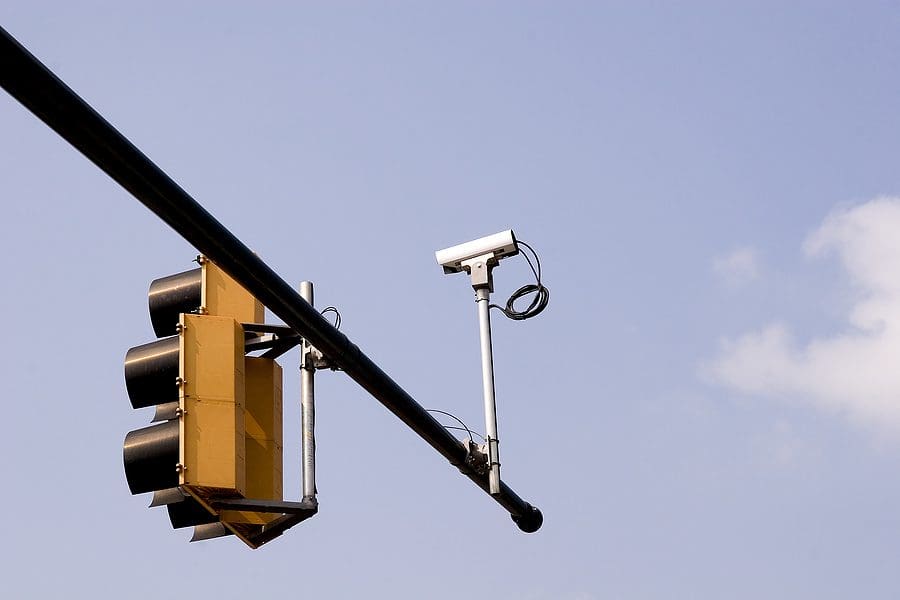
If you were involved in a car accident, contact a personal injury lawyer to navigate the legal process with ease.
An experienced auto accident attorney will help you in several ways, including:
Gather and Analyze Evidence: A skilled personal injury lawyer will help you gather all relevant evidence. This includes traffic camera footage, police reports, medical records, and witness statements.
Remember, obtaining traffic camera footage can be difficult, so hiring an attorney is highly advised. They will help you in filing a subpoena or any other official request necessary to access such footage.
A personal injury lawyer will also analyze all available evidence to identify potential weaknesses in the opposing party’s case. Then, they will build a strong argument in your favor.
Negotiate with Insurance Companies: Insurance companies may be reluctant to offer fair compensation, especially if they believe they can minimize their liability. A skilled personal injury attorney can negotiate with insurance adjusters on your behalf. They will advocate for a fair settlement and protect your interests.
Represent You in Court: If a settlement cannot be reached, the lawyer can represent you in court and argue your case before a judge or jury. They will use their knowledge and experience to present your evidence effectively. Their goal is to persuade the court to award you the compensation you deserve.
Offer legal advice: A lawyer can ensure that your rights are protected throughout the legal process. They can advise you on your options, guide you through the legal procedures, and defend you against any legal challenges.
Handle the Paperwork: The legal process can be complex and time-consuming. A personal injury lawyer will handle much of the paperwork, allowing you to focus on your recovery.
By hiring a Florida personal injury lawyer, you can increase your chances of obtaining fair compensation and achieving a positive outcome in your case.
After a car accident with no injuries, you might wonder if you need an attorney. While it may seem unnecessary, a car accident no injury attorney can be invaluable when dealing with complex property damage claims, insurance disputes, or liability issues.
Insurance companies often try to minimize payouts, even if you’re fully entitled to compensation for vehicle repairs, rental fees, or other related expenses. An attorney can help you understand your rights, negotiate a fair settlement, and handle any legal paperwork.
With their assistance, you can resolved your case efficiently without the stress of dealing with insurers on your own.
Have you been in an accident? Contact Jones Law Group to speak with one of our experienced St. Petersburg personal injury attorneys today.
When you contact our office we will immediately either put you on the phone with one of our attorneys or set an appointment time for you to meet your attorney.
Call us at (727) 571-1333 during regular business hours or (727) 753-8657 on weekends or after regular business hours. You can also use our online contact form to reach out. Remember, you never pay us a dime unless we recover compensation for your injuries.
Yes. Traffic camera footage or other video footage can be invaluable evidence when supporting a car accident claim in Florida. It is a helpful piece of evidence to prove what happened and which party is to blame.
It provides objective proof, identifies the party at fault, and assesses the severity of the accident. This visual evidence strengthens your claim. Consequently, it is harder for the other party to dispute your version of events. It also helps to determine the extent of your damages and potential injuries.
Not necessarily. While traffic camera footage can be extremely helpful in corroborating your case, it is not always essential for a successful claim. If there is no available footage, other types of evidence, such as witness testimonies, police reports, and medical records, can still be used to support your case.
You can still seek compensation despite being partially liable since Florida applies comparative negligence laws. That means, your deserved compensation will be reduced based on the percentage of your fault. For instance, if you are 20% at fault, the damages will be reduced by 20%.
FDOT cameras play a crucial role in enhancing road safety across Florida by providing real-time monitoring and traffic updates to drivers and authorities alike.
Strategically positioned along major highways and intersections, these cameras help detect accidents, congestion, and hazardous conditions. This allows rapid responses from emergency services.
Additionally, they offer a valuable resource for traffic management centers. These centers analyze live footage to manage traffic flow, reduce delays, and inform travelers of potential risks via digital alerts.
This proactive approach not only improves driver awareness but also minimizes accidents, it also makes Florida’s roads safer and more efficient for all.
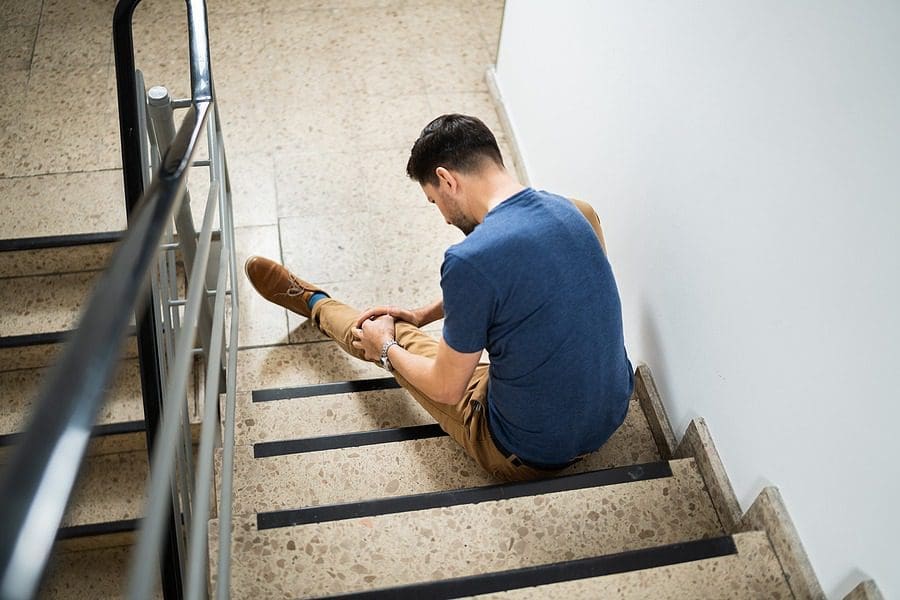
Without the proper safety measures, a staircase can cause serious injury. The result for some injured individuals is large medical debt, lost wages, and a drastic change to one’s quality of life. Slips and falls are extremely common, accounting for over 8 million hospital emergency room visits each year (the leading cause of visits). Falls […]

Slip and fall accidents are among the most common cause of injuries every year. Everybody has slipped and fallen, at one time or another. Most of the time the injury is nothing more than a bruised sense of pride and some embarrassment. However, slip and fall accidents can occasionally cause a variety of serious injuries. […]
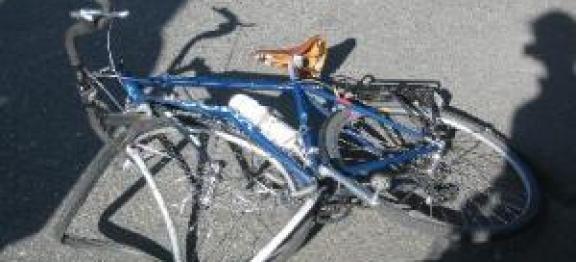
Bicycling Without Proper Safety Clothes is Dangerous I just read a recent article about a bicyclist who was struck and killed while riding along a busy street in St. Petersburg.[1] The article stated that the man was riding along the shoulder of a busy road that did not have a bike lane. It was night […]
Pedestrian Safety Issues in St. Petersburg St. Petersburg is a city in which there are a lot of pedestrians. We are blessed with an urban environment in which walking is practical and convenient. Pinellas County is also home to miles of pristine beaches that are lined by hundreds of resorts and hotels. This tourist haven […]
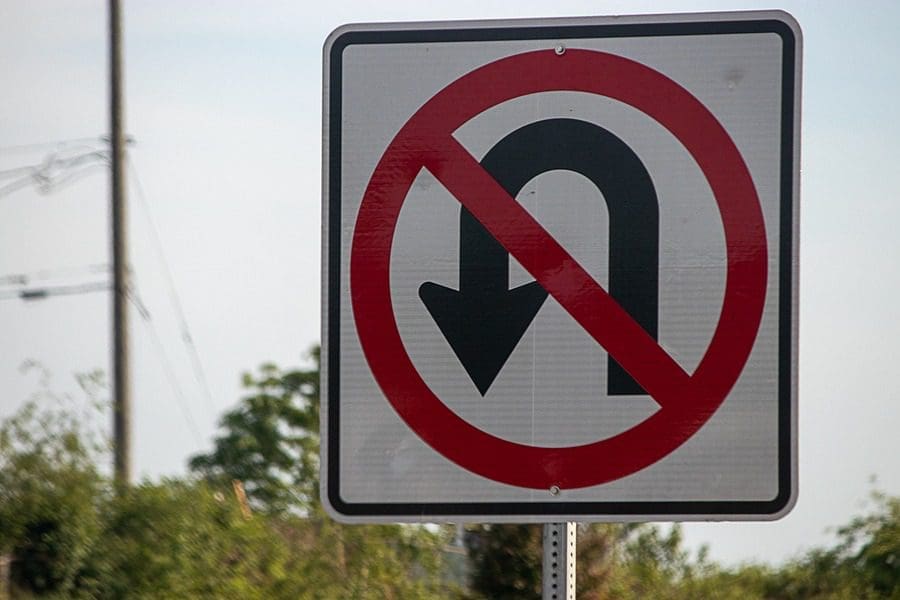
Our team corrects common misconceptions about who has the right of way between a driver making a right turn on red and a driver making a U-turn. Summary If you’ve driven in St. Petersburg for a while, you’ve probably encountered a problem that concerns many people. Near misses happen far too often at fully controlled […]
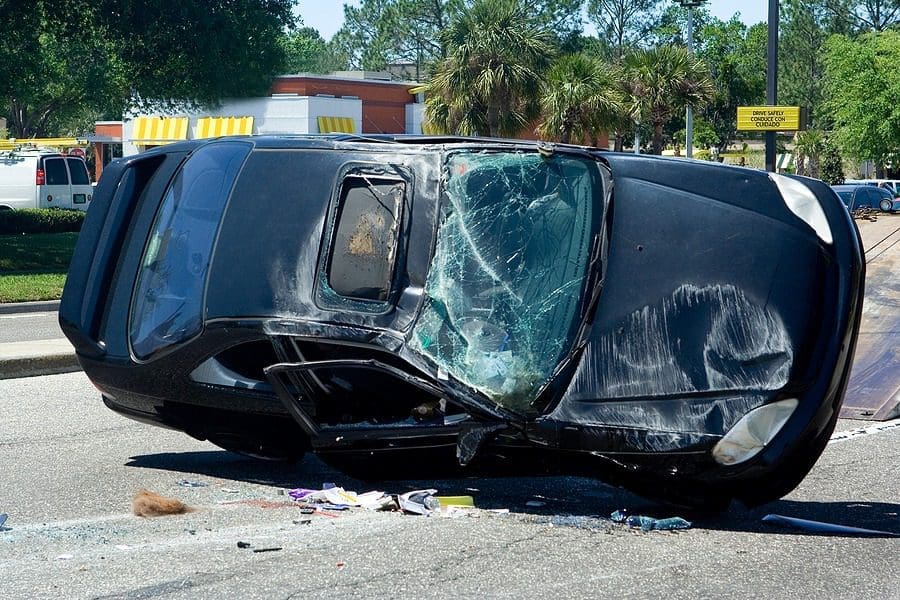
Even though the safety of motor vehicles has vastly improved over the years, far too many people still die because of devastating accidents. Many times, negligent behavior, such as distracted or impaired driving, leads to a fatal crash. Some victims die at the scene of an accident, while others suffer catastrophic injuries that lead to […]
Speak with us before time runs out! In Florida, you have a limited window to file a personal injury case, so speak to an Attorney today.
Call our personal injury law office directly at (727) 512-9847
Jones Law Group is a dedicated personal injury lawyer in St. Petersburg, FL, serving the Tampa Bay area since 2006. Our experienced attorneys specialize in car accidents, slip and fall cases, employment law disputes, construction law issues, and overtime wage claims, fighting for maximum compensation on a contingency fee basis. Contact us for a free consultation to discuss your case.
Call our personal injury law office at (727) 512-9847
© Copyright 2006–2025 Jones Law Group Attorneys at Law. All rights reserved. Privacy Policy Terms of Use
Attorney Advertising.
The information on this website is for general information purposes only. Nothing on this site should be taken as legal advice for any individual case or situation. This information is not intended to create, and receipt or viewing does not constitute, an attorney-client relationship. Past results do not guarantee similar outcomes.
Are you injured or wronged and interested in a consultation? Fill out the form for a free consultation with us.